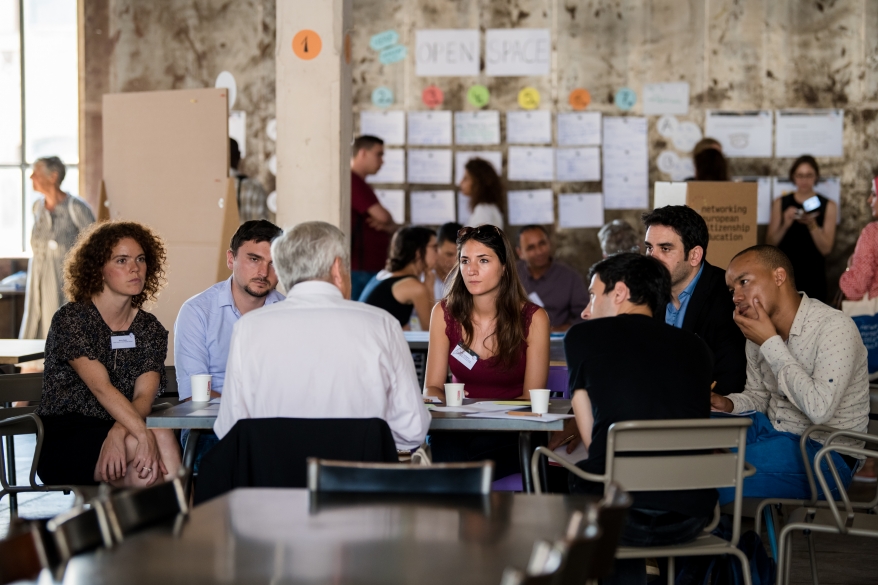Networking European Citizenship Education (NECE) organises an annual event, which offers an ideal framework for a “festival” of networking, dialogue and inspiration. On September 6-9, NECE was held in Marseille. This conference, “Brave New Worlds?! The Future of Democracy and Citizenship Education”, addressed three intertwined challenges for democracies and citizenship education:
- challenges posed by the discourses and practices of an “illiberal democracy” that is increasingly restricting and endangering the space for civil society and citizenship education;
- consequences of a technological revolution that digitises our everyday life, allowing large technological groups’ manipulation power to increase globally;
- the new, immersive “political” worlds that enable people to withdraw into emotional shelters and echo-chambers in order to protect themselves from complexity as well as imagined and real threats.
NECE 2018 provided a platform to discuss strategies on how civil society and citizenship education in Europe can turn this trend in liberal democracy. The event attracted hundreds of people, 53 countries were represented. Online version of programme.
Auréa Cophignon participated to represent Eurodoc. She had a 2 min pitch in front of the audience to present Eurodoc and its new Task Force: “Citizen Science”, that she is co-coordinating with Farouk Allouche. Citizen Science, also referred to as community science or public participation in scientific research, became a global movement with the power to improve the relationship between science, policy, and the general public across a wide range of disciplines. A new goal of Eurodoc is to create opportunities for critical reflections, learning, and networking for the future growth of Citizen Science with a focus on the role of ECRs in the implementation of a European Citizen Science culture.
After the pitch presentation, people interested passed by the Eurodoc stand to have more exchanges and to suggest new partnership. “It was a great opportunity to meet experts on citizenship education; their advices were interesting and very useful to develop our new Task Force.” says Auréa.
Various conferences and workshops were headed. Auréa met Claudio Dondi, a senior expert on education quality, innovation and equity. He presented the project of the International Institute of Humanitarian Law (IIHL, Sanremo), called UPPER: “systemic UPscaling of Peace Education pRactices”, which falls within the framework of the ERASMUS+ Programme. Auréa was invited to attend the next workshop that the IIHL is organising in Sanremo on 23rd November, to see how the Eurodoc Task Force Citizen Science could get involved in UPPER project.
Philippe Ternes, founder and president of Our Common Future, presented another interesting initiative: Imagine Europe, an idea contest inviting everyone (all ages & nationalities) to present their vision of Europe in 2050, in a short written and video-recorded pitch. The contest is presented by a series of European Partners and has received initial funding under the Erasmus+ Programme of the European Union. Auréa was invited to join the project as ambassador, to present it to ECRs.
To cloture the event, Emily O’Reilly, European Ombudsman had a very interesting talk about “The Future of Europe: What do citizens say?” Her talk was moderate by Alberto Alemanno, founder of The Good Lobby.
Next year, NECE will be headed in Glasgow. The Task Force “Citizen Science” will apply to animate a workshop based on their future activities.
More information about Citizen Science: No PhDs needed: how citizen science is transforming research, Nature News Feature 10/23/18.
All photos ©bpb/Caroline Dutrey

